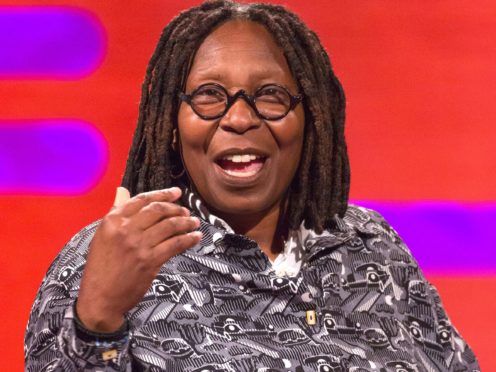Hollywood actor Whoopi Goldberg has joined other celebrities in a plea to people from black, Asian or minority ethnic (BAME) backgrounds to take part in Covid-19 research to help find out why those communities are so badly affected by the virus.
The Oscar winner teamed up with comedian Omid Djalili and Goodness Gracious Me star Sanjeev Bhaskar for a video urging people to help save lives by participating in ongoing tests and trials to establish the reasons behind the increased risk.
Analysis by the Office for National Statistics (ONS) has found black men and women are more than four times more likely to suffer a coronavirus-related death than white people.
People of Bangladeshi and Pakistani, Indian and mixed ethnicities also had an increased risk of death involving Covid-19 compared with those of white ethnicity, the ONS found.
Goldberg lends her voice to the call for a brief appearance in the video for The Centre for BME Health.
Addressing viewers, Djalili said: “As you know we are in the middle of a devastating pandemic and it seems that people from these populaces are affected disproportionately and we need to find out why, now.
“Now, there are a lot of tests and trials and research going on but we’ve just heard that very few people from these communities are putting themselves forward for research.
“We need to get on with this to help people not just here, but globally, so if you know anyone from any background, relatives or friends, please pass on this message.”
Starting the message, Goldberg says: “So, if you’re black”, followed by Bhaskar, who adds: “or if you’re Asian”.
Djalili adds: “Or minority ethnic – please come forward. And the sooner you do it the more lives we can save. Now. Thank you.”
Data reported last month from the Intensive Care National Audit and Research Centre suggested 34.5% of critically-ill Covid-19 patients have BAME backgrounds.
This is despite just 10.8% of the population being black or Asian, according to the 2011 census.
A significant proportion of NHS workers who have died after being diagnosed with Covid-19 have BAME heritage.
Professor Kamlesh Khunti, a professor in primary care diabetes and vascular medicine at the University of Leicester, and director at the Centre for BME Health, said the need for trial participants is an urgent one.
He said: “We have been concerned about this issue based on anecdotal reports and data from Intensive Care National Audit and Research Centre has since confirmed that.
“We now need more data and urgently need people from BAME backgrounds to come forward and take part in ongoing national Covid-19 studies.
“We thank all of the celebrities in helping us to encourage BAME people to join these studies – it is only by research that we can find answers, which will then allow us to design the appropriate health interventions.”
A Public Health England (PHE) review analysing the impact of different factors including ethnicity, gender and age on coronavirus outcomes is expected to be published at the end of May.
